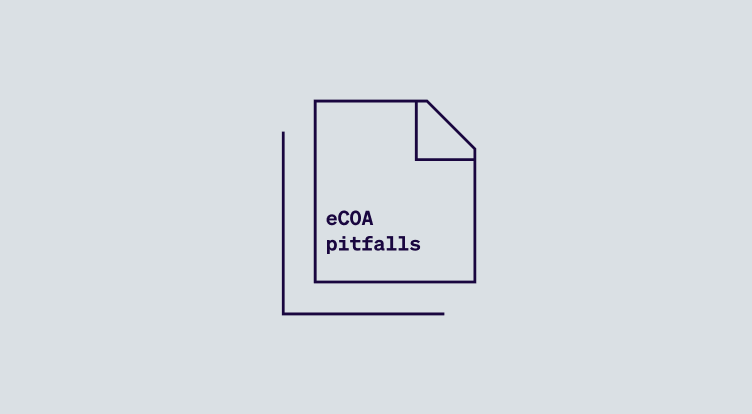
Related articles


eCOA standards and KPIs to include in your next RFI
According to Gartner, a request for information, or a request for proposal, is defined as “both the process and documentation used in soliciting bids for potential business or IT solutions required by an enterprise or government agency. The RFI document typically outlines a statement of requirements (SOR) to be met by prospective respondents wishing to make a bid to deliver the required solutions. It might cover products and/or services to meet the given requirements.”
Yet, for anyone entering into a long-term business agreement, a well-written RFI can do so much more than just assess and collect vendor capabilities.
For the last decade, Medable has been transforming the capabilities of organizations across clinical research using the latest in new technologies. In this time, we’ve learned the best RFIs are able to define what success looks like, create alignment on measurable outcomes, and establish accountability on roles and responsibilities well before a contract is ever signed. When done correctly, it becomes a decision-making framework that offers clear vision to both organizations.
Recently, Medable received two RFIs around eCOA from top pharmaceutical organizations. They stood out to us because they were structured around performance, not promises, a distinction that makes all the difference.


How to successfully transition from paper COAs to eCOA
Electronic clinical outcome assessment (eCOA) systems have reshaped how patient-reported outcome measures are collected and managed in clinical trials. Clinical operations leaders are under more pressure than ever to ensure that the migration from legacy paper instruments to digital platforms not only improves trial efficiency but also preserves data integrity, supports regulatory acceptance, and enhances participant experience.
The transition from paper to electronic capture represents a paradigm shift toward more efficient, accessible, and reliable data collection. Done well, eCOA strengthens evidence generation while reducing burden for participants and sites alike. Done poorly, it risks measurement bias, loss of comparability, and regulatory challenges.
In this article, clinical operations leaders will find evidence-based best practices for migrating and implementing patient-reported measures as part of eCOA strategies. These recommendations are rooted in published industry guidance and emerging scientific consensus, and they reflect the evolving landscape of digital assessment technologies.


Common eCOA implementation pitfalls and how to avoid them
The global eCOA (electronic clinical outcome assessment) solutions market was valued at over two billion dollars in 2025, and is projected to expand rapidly over the coming decade, driven by increased clinical trial activity, digital transformation efforts, and the integration of mobile, cloud, and AI-enabled tools for outcome measurement.
This growth reflects not just broader industry digitization, but an evolving expectation: that outcome data should be accurate, audit-ready through validated systems and controlled operational processes, and capable of supporting decentralized workflows.As more sponsors and CROs incorporate eCOA into their trial strategies and regulators continue to emphasize electronic data integrity the stakes of successful implementation have never been higher.
Yet with greater adoption comes greater complexity: pitfalls around site burden, mid-study amendments, device logistics, and training gaps can undermine even the most advanced platforms if not thoughtfully addressed.
The good news? These common challenges can be anticipated and managed with practical, operationally aligned planning turning eCOA from a source of friction into a strategic advantage for trial success.




